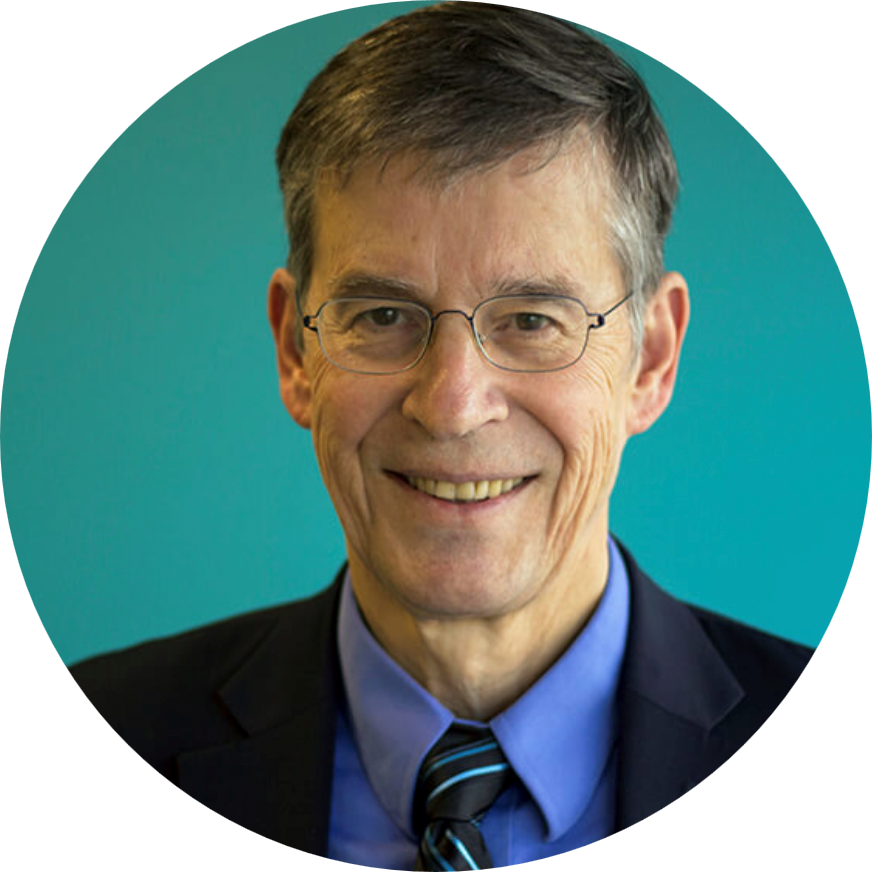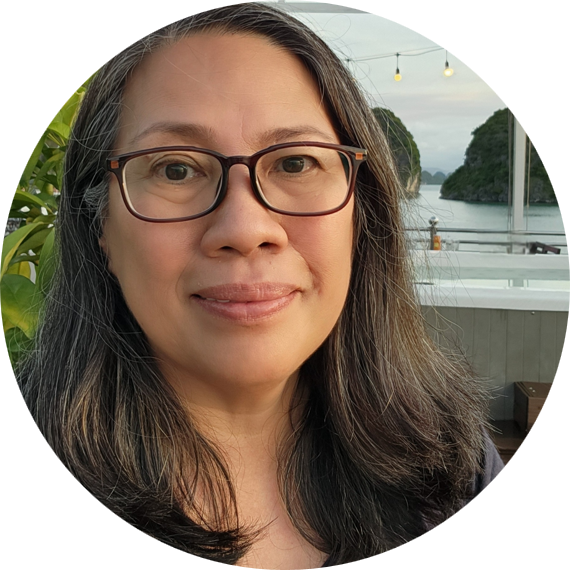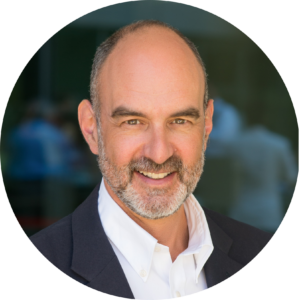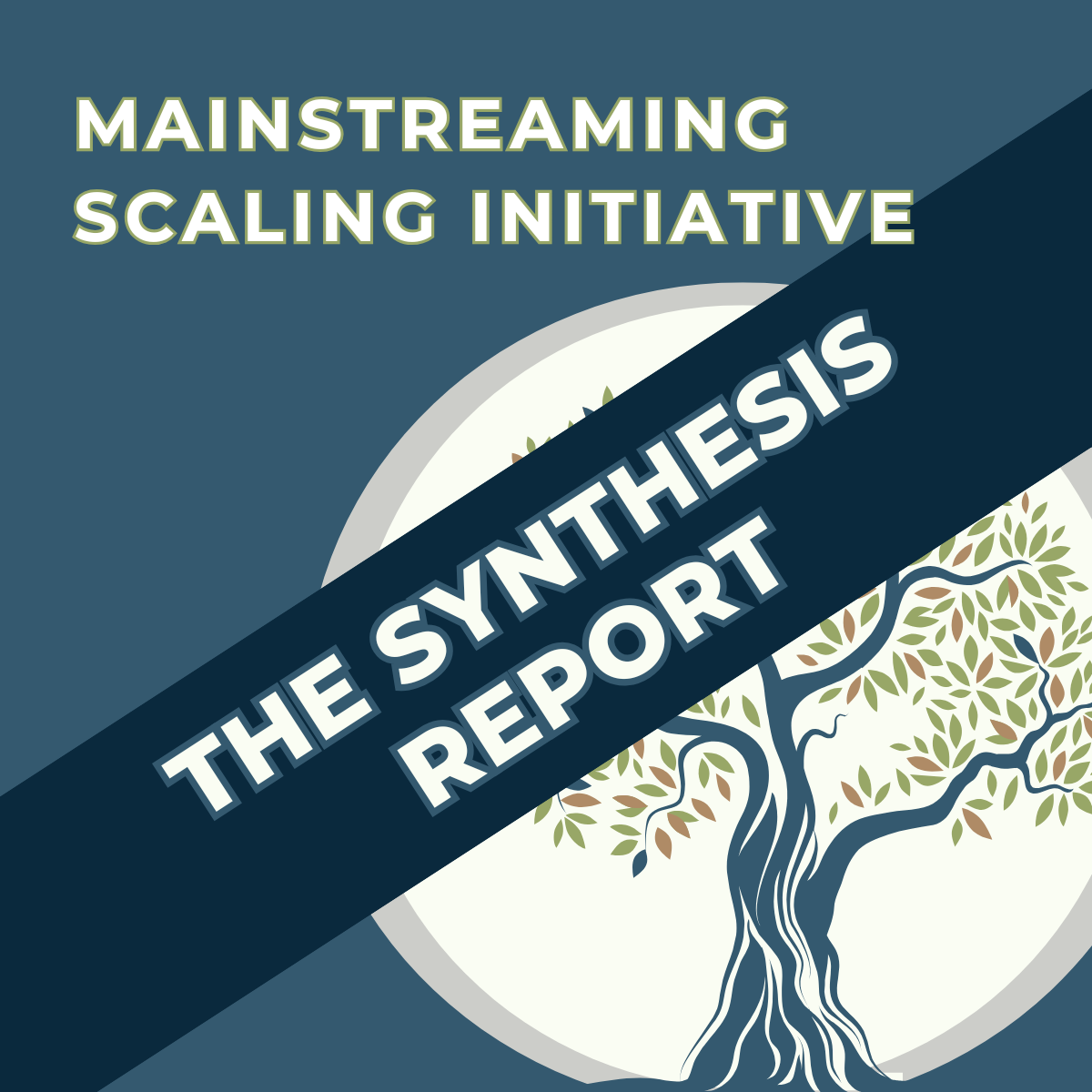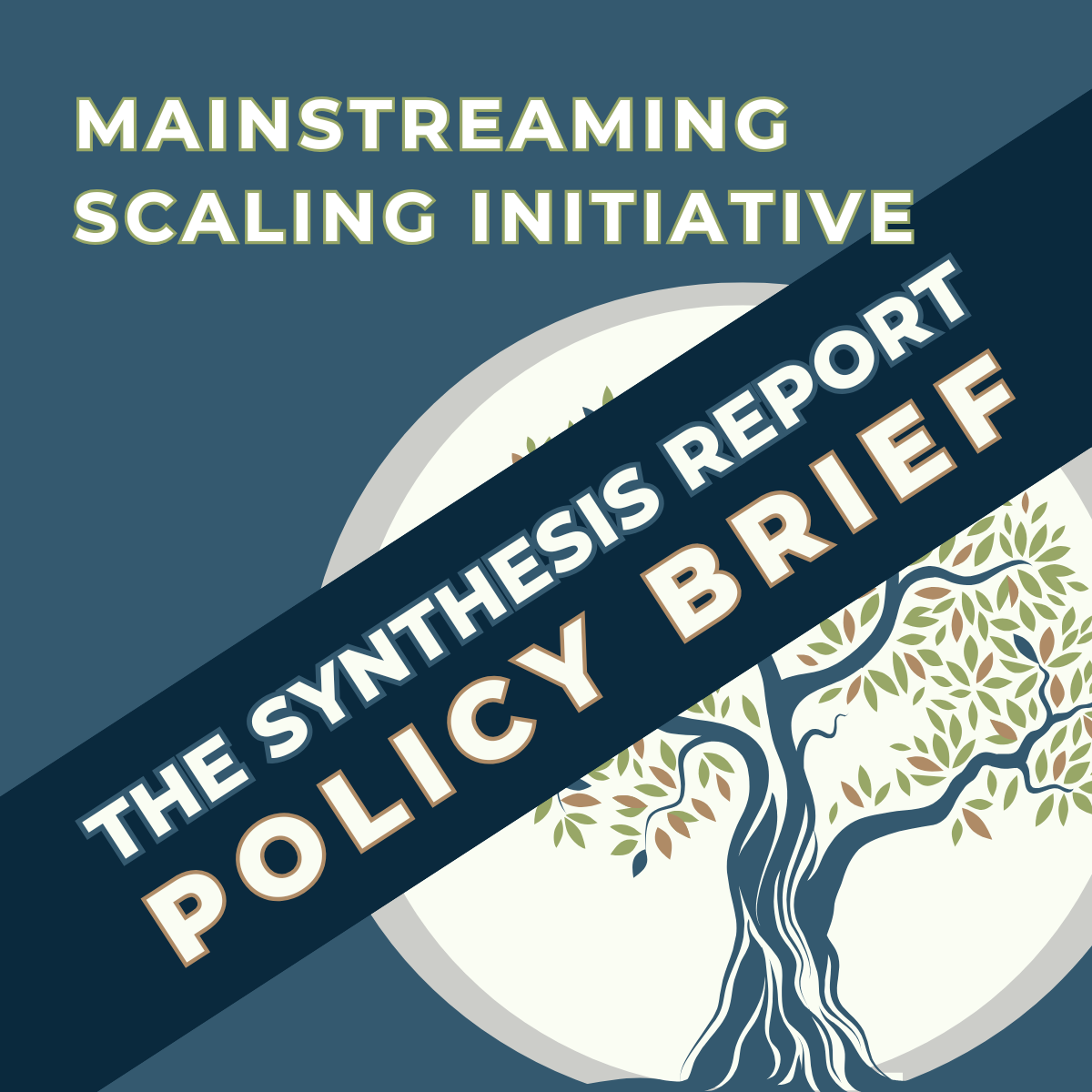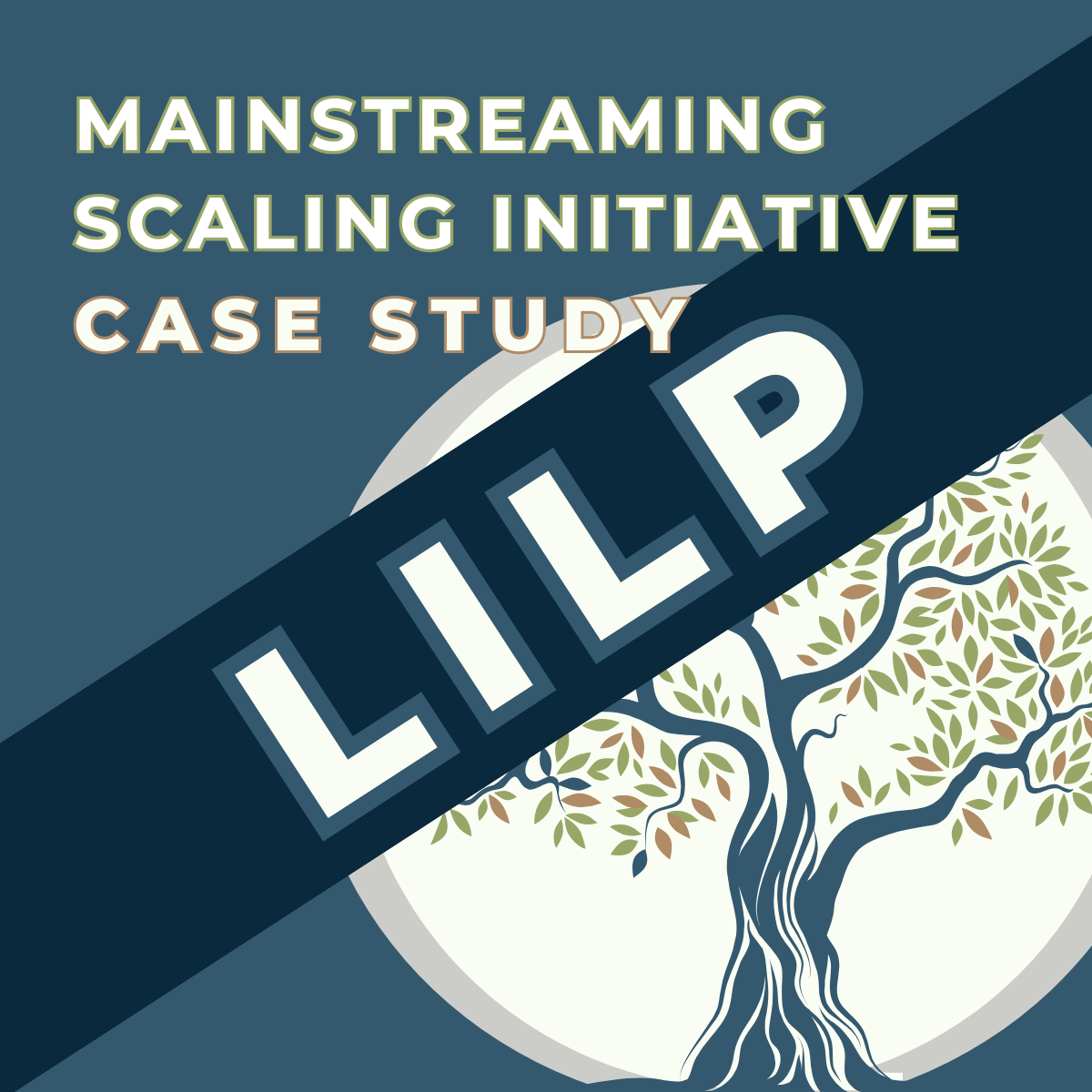Description
As announced in our recent Newsletter #32, in this townhall meeting we would like to give you all an opportunity to share with each other and with us your perspective on the crisis in development and climate assistance and how the scaling agenda needs to be adapted to respond to the crisis. We will also brief you on how the Scaling Community of Practice is responding at this critical moment. In particular, we will brief you on the Community’s campaign to mainstream scaling in development and climate action, listen to your ideas and perspectives, and explore ways to involve you actively in the Mainstreaming Campaign going forward.
From disruption to direction: Rethinking international development with insights from the SCoP Townhall
In response to the crisis in development finance and urgent need for a systematic focus on transformational scaling, the Scaling Community of Practice convened an extraordinary townhall on April 2, 2025. The meeting collected feedback from almost 50 members about their experiences and gathered guidance on how the community could be most helpful during these challenging times. This wasn’t a space for updates or business-as-usual dialogue. It was a collective opportunity to re-group and re-focus on what matters most: achieving sustainable international development that improves the lives of a meaningful portion of the global population.
Below are the key takeaways from the session, which focused not only on the consequences of the global funding crisis, but on the opportunity it presents to reimagine international development altogether.
1. This Isn’t Just a Funding Crisis—It’s a Systemic Shift
The immediate trigger may be the U.S. freeze on development and humanitarian funding, but as Lan Mercado (CRS) reminded the group, this crisis has deeper roots. Donors like Sweden and the Netherlands had already begun slashing aid, setting off a wave of layoffs, program closures, and growing instability across the sector.
The more fundamental issue is a shift in power—one that threatens the survival of national civil society organizations, particularly those dependent on international NGOs as intermediaries, with little in the way of reserves or direct donor access. To address this, localization must go beyond rhetoric. As several speakers emphasized, this is not about inclusion or capacity building—it’s about local actors owning the agenda, shaping partnerships, and designing solutions. Participants identified localization and a re-shaping of international power structures as the main opportunities presented by the funding crisis. We see locally lead transformative scaling as a key to making the most of remaining resources, mitigating the effects of future upheavals, and developing a more equitable and just future.
Takeaway: Funding cuts are not a temporary disruption; they mark a redefinition of the system. Adaptation now requires structural transformation. The future of development is locally led. If an initiative isn’t shifting power to local leadership, it’s not possible to scale—it’s just reinforcing dependency.
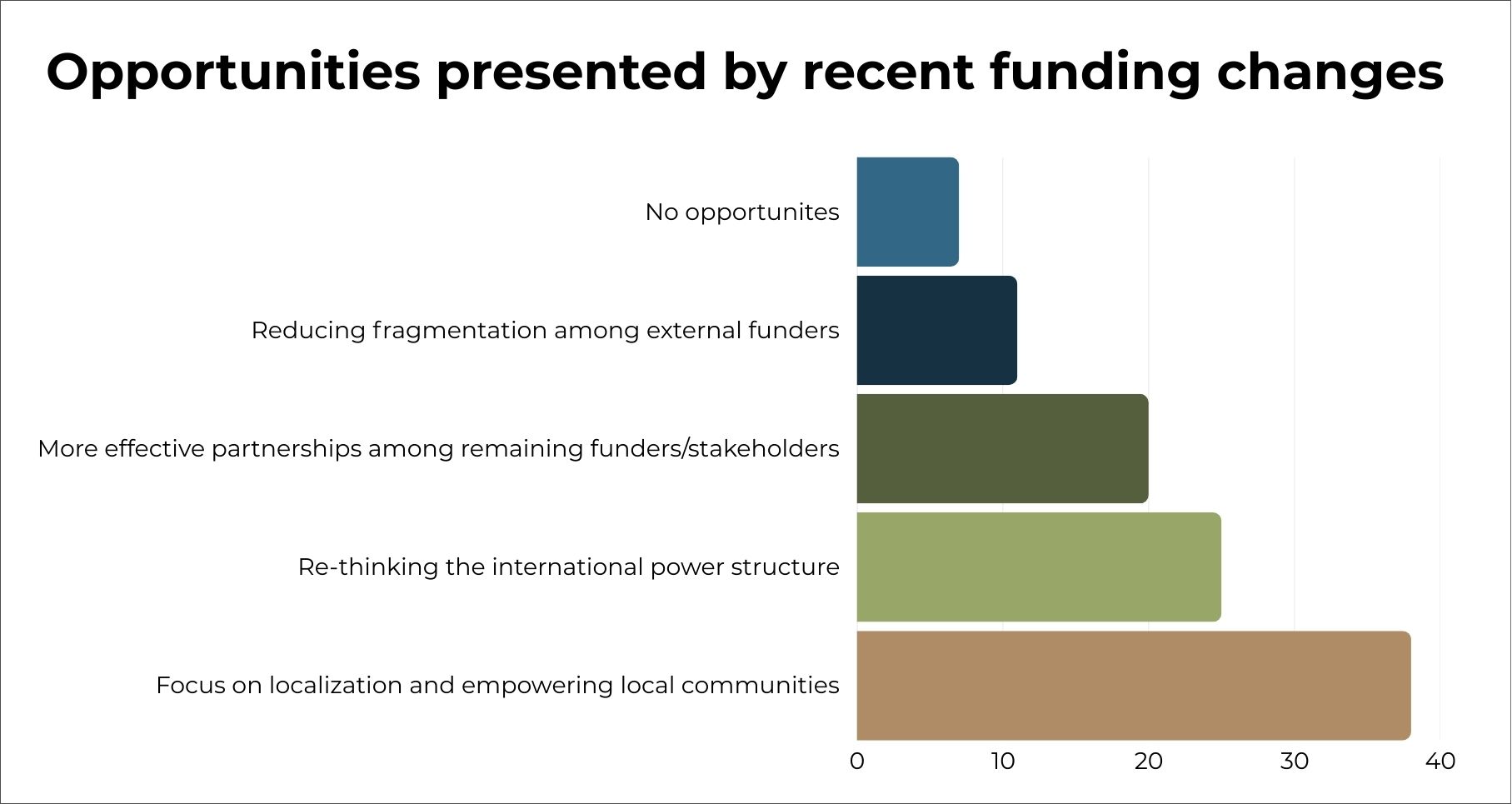
2. Scaling Must Be Redefined—And Mainstreamed
The Townhall affirmed that scaling remains realistic—even necessary—in this moment, but only if we’re clear about what kind of scaling we mean.
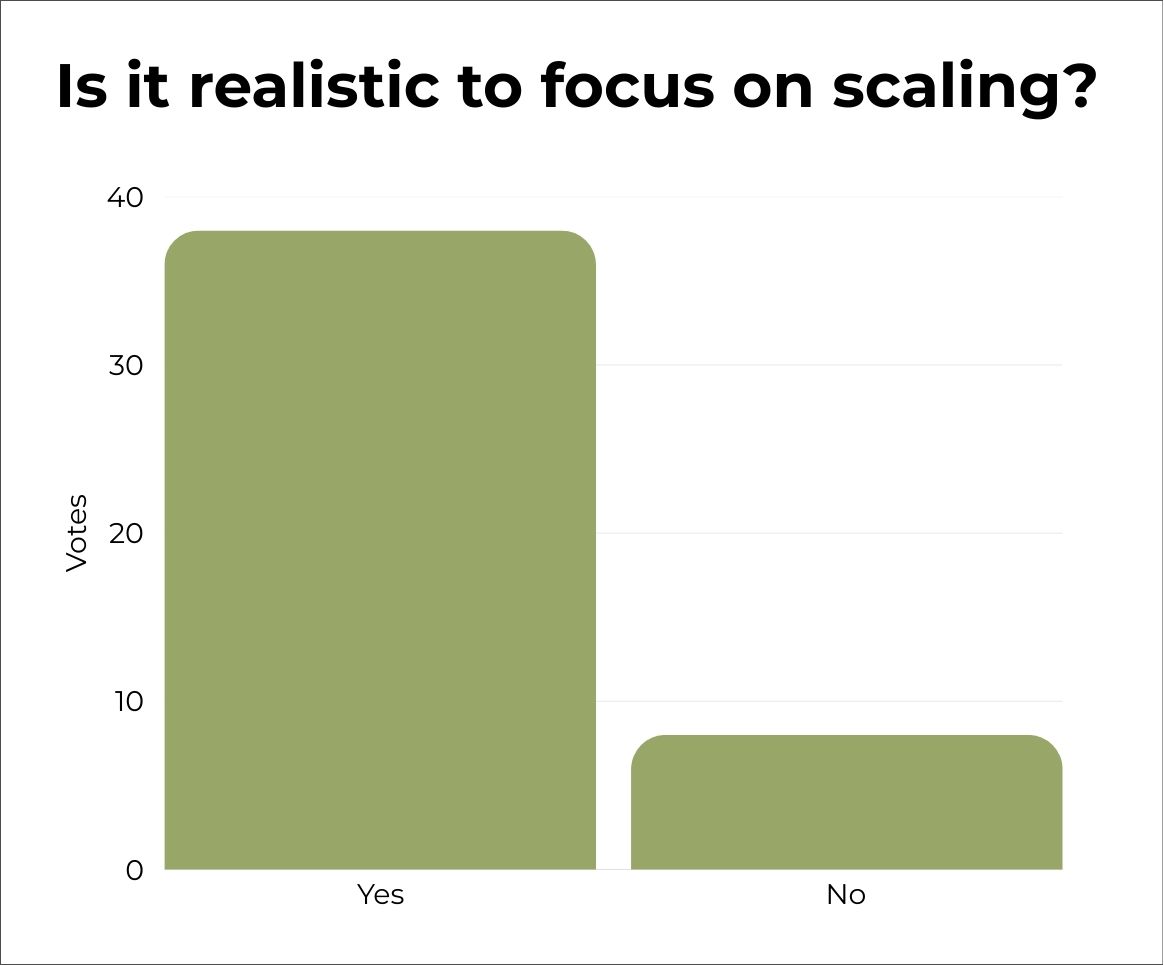
Transformational scaling isn’t about replicating pilot projects or growing budgets. It’s about changing systems. It requires long-term strategies, political will, and alignment across sectors and institutions. It demands letting go of supply-driven, short-term projects that don’t last.
That’s why SCoP is launching a five-year campaign to mainstream scaling across the global development and climate ecosystem. This campaign will go beyond funders to include governments, local civil society, private sector actors, multilateral institutions, and academic networks.
Takeaway: The goal isn’t more scaling—it’s better scaling. Scaling that sticks, that shifts systems, and that’s owned by the communities it serves.
3. This Campaign Will Only Work If It’s Collaborative
The campaign strategy—outlined by Johannes Linn and supported by new team members including Simon Winter—emphasizes building a broad, cross-sector coalition. That means not just targeting funders, but also mobilizing implementers, advocates, researchers, and host governments.
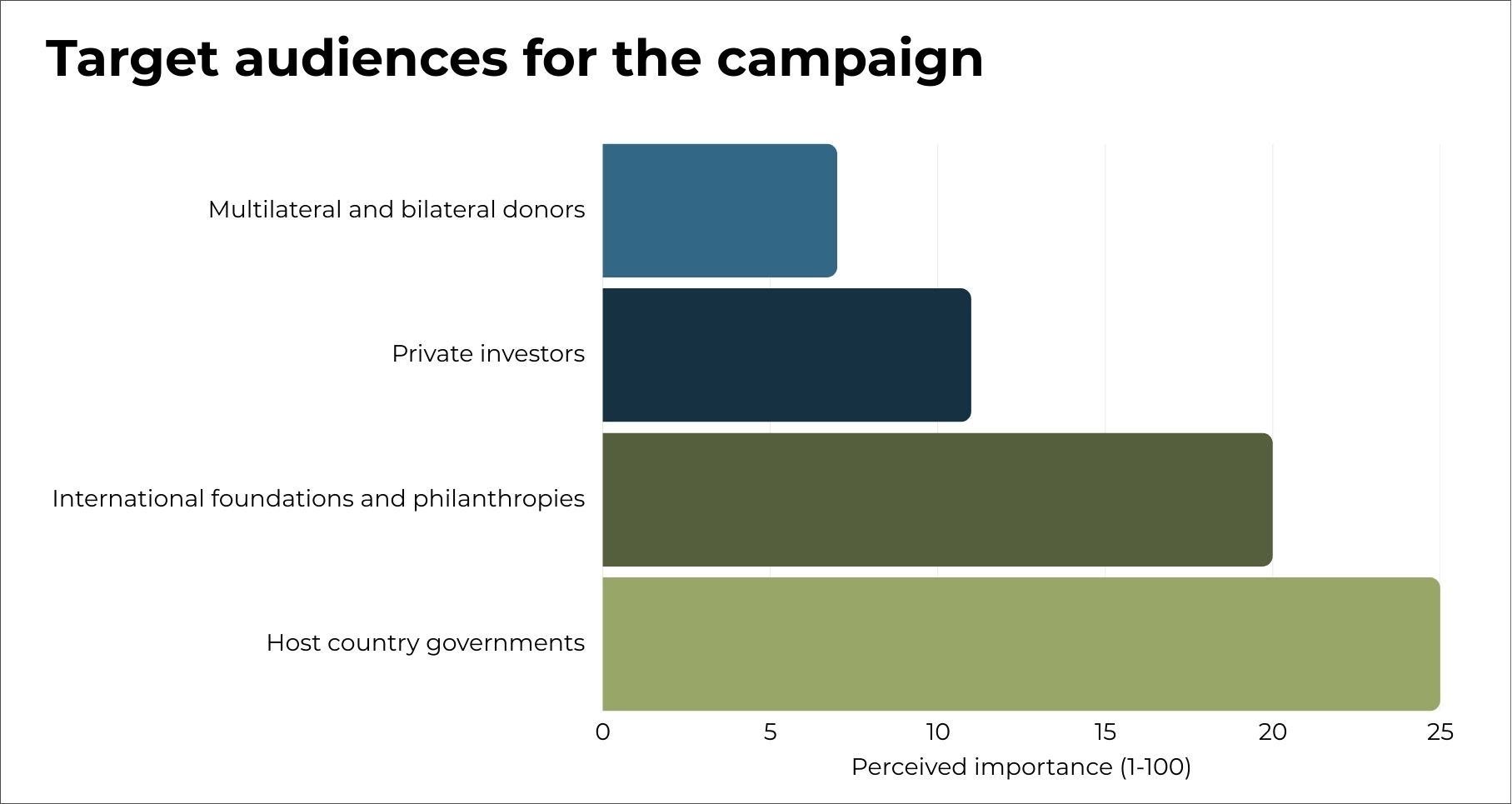
It also means turning SCoP itself from a learning network into an engine for collective action. This will mean focusing on advocacy, knowledge creation, and influencing global standards and norms in the coming years. The campaign will be formally housed under Dalberg Catalyst, enabling the community to raise funds, support core staff, and pursue long-term sustainability—without becoming a top-down organization.
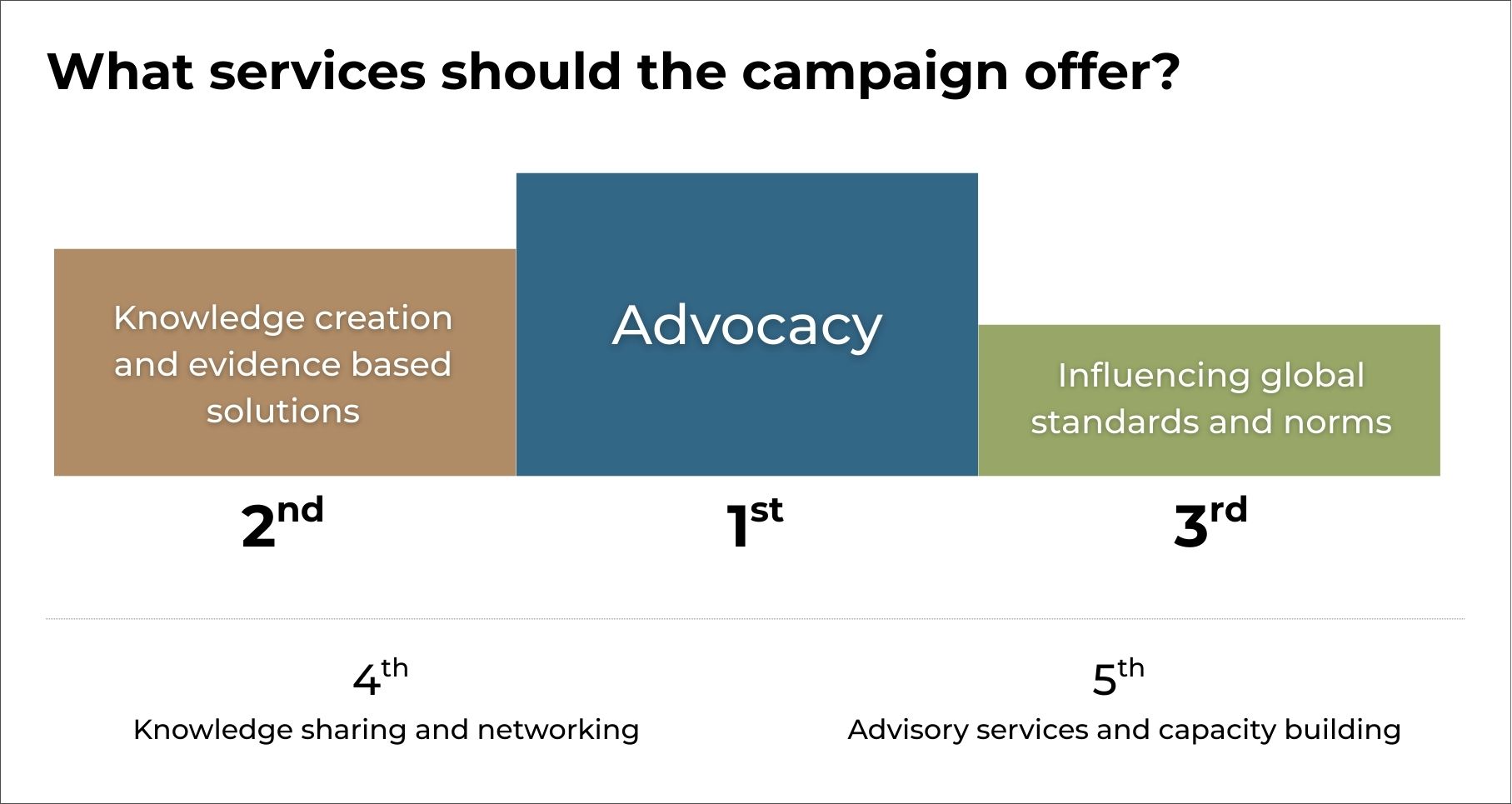
Takeaway: Everyone has a role to play. Whether you’re a funder, implementer, researcher, or advocate, this campaign needs your voice, your networks, and your leadership.
4. “Don’t Waste a Good Crisis” Means Acting Now
Multiple speakers—including Lan, Charlotte Coogan, and Larry Cooley—underscored the urgency of the moment. This is not a time for analysis paralysis or incremental reform. The current crisis may be painful, but it offers a rare opportunity to remake the system.
Momentum is already building: regional philanthropic efforts like the Asia Climate Philanthropy Advisory Council are stepping in where donors are retreating. New thinking is emerging on power-sharing, systems change, and sustainable finance. The question is not whether transformation is needed. It’s whether we’re bold enough to drive it.
Takeaway: This is an inflection point. Either the development system breaks—and takes many of its partners down with it—or we use this moment to build something stronger, more just, and more effective.
What Comes Next?
The campaign team is actively soliciting feedback, partnerships, and participation. Upcoming consultations, advocacy work, and strategy development will be co-created with the community. SCoP isn’t asking for spectators—it’s calling for co-builders.
If you or your organization are ready to contribute—whether through thought leadership, policy advocacy, funder engagement, or field-level collaboration—reach out. This work is urgent. And it’s shared.
Final takeaway: The old model is collapsing. The only question is: what will we build in its place?
To join the campaign, share feedback, or get involved, connect with the SCoP team through their website or contact Charlotte Coogan (ccoogan@foodsecurityevidence.com).
|
|
|
|

